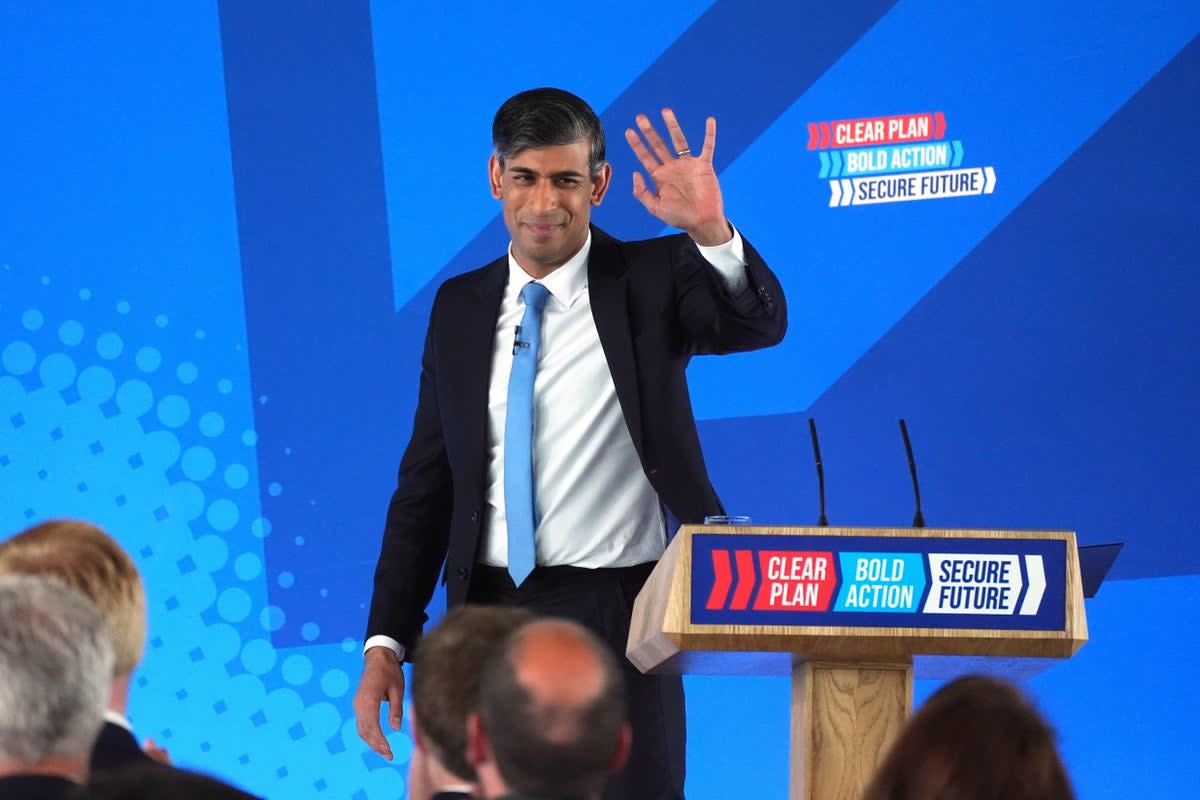OPINION - In a display of brute rhetorical bravado, Starmer criticises Sunak's 'Corbyn-style' manifesto

Less than two weeks before the 2016 Iowa caucus, Donald Trump sought to demonstrate his supreme confidence in the loyalty of his followers.
"I could stand in the middle of Fifth Avenue and shoot somebody, and I wouldn't lose any voters, OK? It's, like, incredible."
Keir Starmer did not exactly express an interest in violence today, but he exhibited Trump-like reserves of belief in the foundations of his support. Questioned on the Conservative manifesto – which unsurprisingly went heavy on the promise of tax cuts – the Labour leader called it a "Corbyn-style" document into which "anything you want can go in, [but] none of it is costed".
This was disconcerting for a couple of reasons. First, it's roughly what I said this morning in our daily news conference: that parties untrusted on tax and spend who promise even more at election time tend to end up further alienating voters. (See: Labour and Waspi women.)
But second – and I cannot stress this enough – Starmer actually went out in 2019 and urged people to vote Labour on the basis of that manifesto. Had Jeremy Corbyn won, Starmer would have presumably supported a Labour Queen's Speech to implement those policies, insofar as the gilt market would have allowed.
That Starmer served in Corbyn's shadow cabinet for four years is supposed to be a Tory attack line! In fact, it's one of the few that kind of makes sense and goes something like this: Corbyn is bad. Starmer supported Corbyn. Therefore, Starmer must be bad. Yet it has never really cut through with the public, because Corbyn didn't win and his successor has since repudiated practically every one of his beliefs. For Starmer to volunteer the comparison represents an act of brute rhetorical force.
This was supposed to be a newsletter about the Tory manifesto, but the risk was that it became yet another edition of West End Final that accused one of the parties' tax and spending programmes of adding up to a bushel of potatoes. So instead, I'll subcontract out to Paul Johnson, director of the Institute for Fiscal Studies:
“The Conservatives have promised some £17 billion per year of tax cuts, and a big hike in defence spending. That is supposedly funded by reducing the projected welfare bill by £12 billion; cracking down on tax avoidance and evasion; and saving billions from cutting civil service numbers, reducing spending on management consultants, and “quango efficiencies”. Those are definite giveaways paid for by uncertain, unspecific and apparently victimless savings. Forgive a degree of scepticism."
Which is independent economics research institute speak for: srsly?
Manifestos are supposed to act as guides for the next parliament and to tell a narrative to voters. Ideally, they might also allow for meaningful scrutiny of their pledges. This one simply had to stop the bleeding. To give Conservative MPs something to say on television or the doorstep that isn't D-Day apologies or whatever this was from under-fire Tory chair Richard Holden. As for Labour's manifesto launch, expected on Thursday, it will aim to say as little as possible.
This article appears in our award-winning newsletter, West End Final – delivered 4pm daily – bringing you the very best of the paper, from culture and comment to features and sport. Sign up here.


